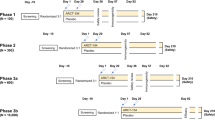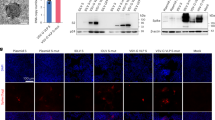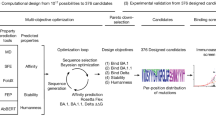Abstract
Flaviviruses, when complexed with antibody at subneutralizing concentrations, show enhanced replication in human and simian peripheral blood leukocytes (ref. 1, and J.S.M.P. and J.S.P., unpublished observations) and in P388 D1 and other macrophage cell lines2. A comparable phenomenon has been demonstrated with alphaviruses and Bunyaviruses in P388 D1 cells, (J.S.M.P. and J.S.P., unpublished observations) but cells lacking macrophage characteristics fail to show antibody-dependent enhancement (ADE) of viral replication. It has been suggested that the macrophage Fc receptor (FcR) providesan efficient route of entry of virus through the attachment of non-neutralized virus–antibody complexes and that for those viruses that escape destruction by the phagocyte, antibody results in a paradoxical increase in virus replication3. West Nile virus (WNV) replication in the P388 D1 macrophage cell line provides a reproducible model system for studying ADE of viral replication.Mouse macrophages have two FcRs—FcRI, which is trypsin-sensitive and binds IgG2a, and FcRII, which is trypsin-resistant and binds IgG2b and IgG1 complexes4. The FcR has been purified5 using rat anti-mouse FcR monoclonal antibody which blocks FcRII6. We show here that anti-FcR IgG and its Fab fragment block ADE of virus replication by anti-WNV monoclonal antibodies.
This is a preview of subscription content, access via your institution
Access options
Subscribe to this journal
Receive 51 print issues and online access
$199.00 per year
only $3.90 per issue
Buy this article
- Purchase on Springer Link
- Instant access to full article PDF
Prices may be subject to local taxes which are calculated during checkout
Similar content being viewed by others
References
Halstead, S. B. & O'Rourke, E. J. J. exp. Med. 146, 201–217 (1977).
Peiris, J. S. M. & Porterfield, J. S. Nature 282, 509–511 (1979).
Halstead, S. B. Bull. Wld Hlth Org. 58, 1–21 (1980).
Diamond, B., Bloom, B. R. & Scharff, M. D. J. Immun. 121, 1329–1333 (1978).
Mellman, I. S. & Unkeless, J. C. J. exp. Med. 152, 1048–1069 (1980).
Unkeless, J. C. J. exp. Med. 150, 580–596 (1979).
Snyderman, R., Pike, M. C., Fischer, D.G. & Keren, H. S. J. Immun. 119, 2060–2066 (1977).
Galfre, G., Howe, S. C., Milstein, C., Butcher, G. W. & Howard, J. C. Nature 266, 550–552 (1977).
Austyn, J. & Gordon, S. (in preparation).
Webster, R. G. & Askonas, B. A. Eur. J. Immun. 10, 396–401 (1980).
Halstead, S. B. J. infect. Dis. 140, 527–533 (1980).
Madrid, A. T. de & Porterfield, J.S. Bull. Wld Hlth Org. 40, 113–121 (1969).
Rosenthal, J. D., Hayashi, K. & Notkins, A. L. Appl.Microbiol. 25, 567–573 (1973).
Author information
Authors and Affiliations
Rights and permissions
About this article
Cite this article
Peiris, J., Gordon, S., Unkeless, J. et al. Monoclonal anti-Fc receptor IgG blocks antibody enhancement of viral replication in macrophages. Nature 289, 189–191 (1981). https://doi.org/10.1038/289189a0
Received:
Accepted:
Issue Date:
DOI: https://doi.org/10.1038/289189a0
This article is cited by
-
Increased plasma levels of CCL20 in peripheral blood of rheumatoid arthritis patients and its association with clinical and laboratory parameters
Clinical Rheumatology (2022)
-
The signal pathways and treatment of cytokine storm in COVID-19
Signal Transduction and Targeted Therapy (2021)
-
Protection against dengue disease by synthetic nucleic acid antibody prophylaxis/immunotherapy
Scientific Reports (2015)
-
Subneutralizing antibodies to enterovirus 71 induce antibody-dependent enhancement of infection in newborn mice
Medical Microbiology and Immunology (2013)
-
Characterization of protein involvement in rabies virus binding to BHK-21 cells
Archives of Virology (1995)
Comments
By submitting a comment you agree to abide by our Terms and Community Guidelines. If you find something abusive or that does not comply with our terms or guidelines please flag it as inappropriate.



